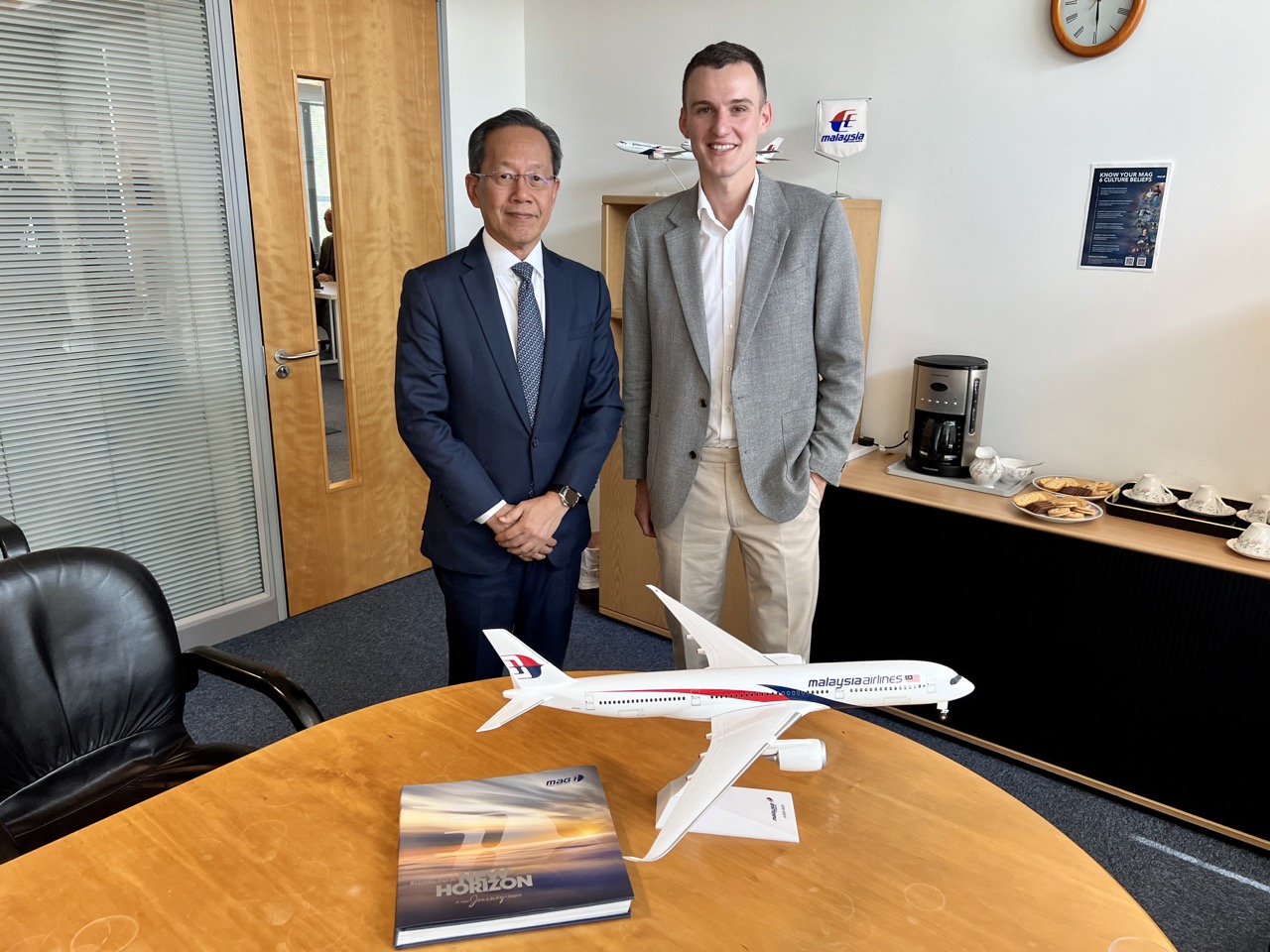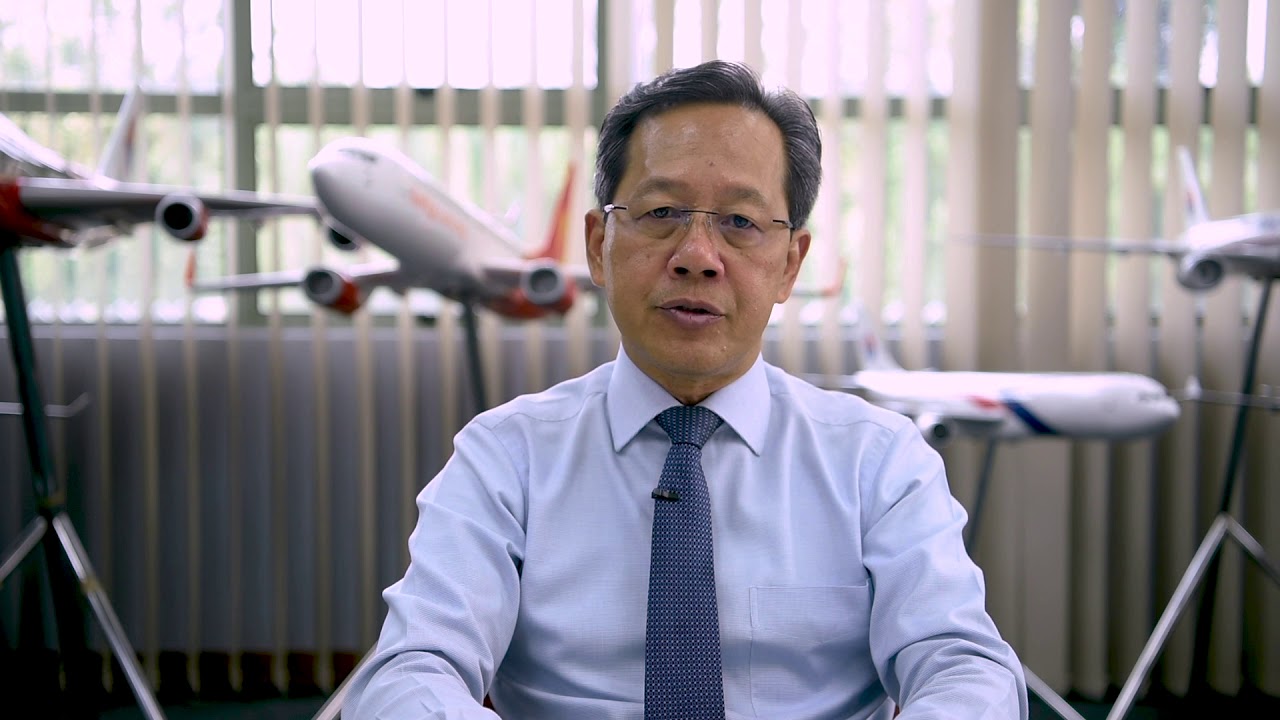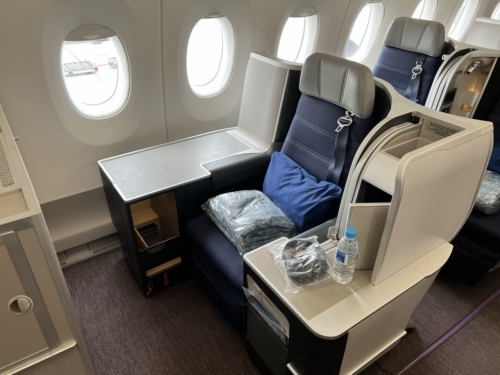Exclusive (Part 1): How Malaysia Airlines survived – and thrived – during the pandemic
Links on Head for Points may support the site by paying a commission. See here for all partner links.
Last week I had the chance to sit down for 90 minutes with Datuk Captain Izham Ismail, the CEO of Malaysia Aviation Group, who was visiting the UK after attending the IATA General Meeting in Istanbul. It is the first time in four years that Captain Izham has visited the UK team, led by Daniel Bainbridge.
Malaysia Airlines has two daily flights from London Heathrow to Kuala Lumpur, with connections onwards across Asia and Australasia. Our most recent Malaysia Airlines flight review is here. It is a member of the oneworld alliance, alongside British Airways, and you can earn and spend Avios on its flights.
Captain Izham’s story isn’t typical of an airline CEO. He started at Malaysia Airlines in 1979 – “how old were you then?” he jokes – first as a pilot, before moving into management after 10 years.
In 1997 he flew Malaysia Airline’s first Boeing 777-200 from Seattle to Kuala Lumpur and back. This set a new world record for the longest flight and fastest round-the-world flight by a commercial airliner, at 41 hours 59 minutes and 23,310 miles.
Since 2017 he’s been at the helm of the group, having taken over during a particularly turbulent time. In 2015 the airline was restructured after being declared technically bankrupt.
Christopher Mueller, formerly of Aer Lingus, took over as CEO but made a surprise exit less than a year later, to be replaced by Peter Bellew from Ryanair. Bellew also left just over a year later, in 2017, with Captain Izham taking over – and staying – for the past six years. “Since 2015 we’ve had three CEOs – so I’m the fourth one”.
Meeting at the Malaysia Airlines office in Earl’s Court, Captain Izham is just as down-to-earth and humble as he sounds. Whilst he’s only just been bestowed with the title of ‘Datuk’ from the Distinguished Order of Meritorious Service for commendable service to the country, Malaysia’s equivalent to the honours system, he insists I call him Izham.
A bit of background on Malaysia Airlines
The last two decades have not exactly been kind to the airline. In addition to the rapid turnover of top management, driven in part by deepening debt and lack of profitability, the airline has experienced two major aviation incidents.
Captain Izham is candid about the airline’s struggles, which saw it return to government ownership at the same time as it was declared bankrupt and put into restructuring measures.
“We were inefficient. The balance sheet was what it was 20 years ago – we carried a liability of about 25 billion Ringgit” (about £4.3 billion.)
When he took over in 2017, some restructuring had already taken place. Malaysia Airlines had downsized to around 12,000 staff – a “huge difference” from 20,000 it employed previously – whilst still operating the same number of aircraft, give or take.
But the airline was still loss making. In fact, “it’s been loss making for the last two decades.” Captain Izham’s first job was to try and drag the airline into profitability, but one of the biggest problems was the noose of debt around its neck – “we were trapped and we were still heavy on costs, but we restructured our revenue first.”
“We started that journey in June 2019. By December 2019, we saw the hockey stick, right? We were without a doubt still loss making. But we were 4% ahead. We were 18% ahead of our budget. With that trajectory we went into 2020 4% ahead of budget already.”
That was a good start, but dark clouds were already on the horizon, with whispers from Wuhan of a potentially dangerous new virus emerging.
In many ways, however, Malaysia Airlines was well positioned for what was coming. Captain Izham had already taken its headquarters in Kuala Lumpur fully remote in November 2019. “We couldn’t get talent because the office was located 80 kilometres from the city. So we went virtual.”
This put it on strong footing and allowed it to adapt whilst other companies scrambled to deal with stay-at-home orders in Spring 2020.
In fact, in some ways covid came as a blessing. Malaysia Airlines still had 25 billion Ringgits on the balance sheet – debt it still hadn’t shaken off since 2015 – and now was a chance to reduce it.
“We felt that this is the opportunity for us to reset the balance sheet. So we were toying with the idea of Chapter 11 bankruptcy in the US and many more. In the end, we decided to file the restructuring in the UK. And we did it with lightning speed in 133 days …. we brought our liability right down to 9 billion Ringgits and achieved a gearing ratio of 1x as compared to previously, when it was about 9x.”
No redundancies
Whilst it restructured its liabilities in court, Malaysia Airlines was one of the few airlines not to make redundancies during the pandemic.
“Malaysia Airlines, out of 800 airlines globally, is one of the only airlines that did not retrench anyone. We kept everybody, and of course the shareholders and the board wanted us to offload about 5,000 people – almost half. But I told them ‘Look, I’ve been in this business for the last 40 years. It’s not easy to train a pilot. It’s not easy to train the check-in counter staff, or the call centre, or anyone in the business.'”
“So what is our proposition? Staff united and took a voluntary pay cut. Assistant managers, managers, senior managers right up to C Suite and the board too paycuts between 10% and 70%. The money that we saved, we used to support the lower income group – our baggage handlers and so forth. Of course, there were noises intiially – ‘they’re cutting my salary’ – but it was the only option. Either we let you go, or we try to keep everybody together.
“Imagine walking to the airport, and the check-in counter staff knows you and holds your hand and says, ‘Thank you for sacrificing yourself to help me’. You know, it felt like, ‘Oh, my God, I’m doing something right.”
Malaysia Airlines is ready for take-off
Post pandemic, the airline has been on an upward trajectory. In 2021, it forecast a net loss of 1.7 billion Ringgit (£300 million). In actual fact, it was less than half that – just 600 million. In 2022 it halved this again, to a loss of 300 million Ringgit (£50 million) from a forecast of 900 million.
“So, what did we do? Number one, of course, the opportunity, the marketplace is strong. Number two, our balance sheet. And we’re very focused on where we fly. With 100 airplanes, you cannot fly the world. And if you put an airplane on a route which is not making money, you’re gonna burn cash. So we put airplanes smartly on routes that make money.”
Sounds simple, but not always a given in state owned companies ….
“We have been daily cash positive for the last 690 days …. the organisation has accumulated 5 billion Ringgit in cash. Today, with our team members we are very fast to execution, the cadence of the organisation has changed, we have a very light balance sheet.”
“I’ve been at Malaysia Airlines for the last 43 years. The last time I had a bonus was in 1987. Last month, we gave our people some bonuses.”
In Part 2, click here, Captain Izham and I discuss Malaysia Airlines’ future, including upcoming aircraft, new business class seats and free wifi offering.






 Rob
Rob 





Comments (34)